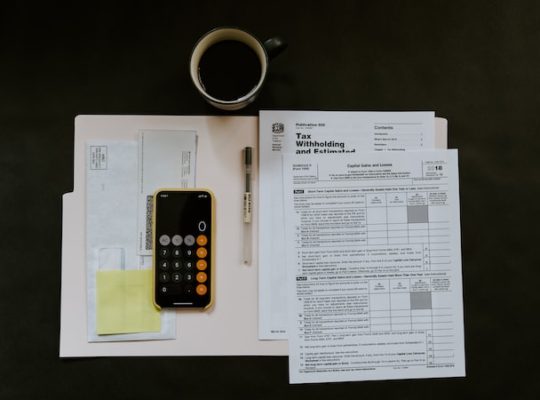We just returned from a wonderful Spring Break trip with family and friends.
Well it wasn’t all wonderful. Sometimes it was downright exhausting and painful.
Put three strong-willed teenage sibling girls together for a week, lots of walking, long car rides, and cramped sleeping arrangements and you set the stage for some not so great moments to arise and that they did.
One in particular, the details of which I will leave out here, led to a full on tantrum/outburst from ME.
Yes, that’s right. Me, the mom, the adult, the one who is supposed to be the level-headed, reasonable, calm parent completely lost it one night.
It was not pretty and I’m not proud of it.
In fact, I was quite full of shame and guilt about it all. Add to the fact that I am a life coach who helps other moms to not do exactly what I just did and the guilt and shame are multiplied exponentially.
So how do I move on when something like this happens?
How do you move on when you mess up and do the thing you vowed not to do?
Maybe it’s yelling at your kids. Maybe it’s overeating or overdrinking. Maybe it’s avoiding the workout you had planned and sleeping in again.
Whatever it is that you did that you didn’t want to do, the big question is … what comes next???
The answer to this question will determine not only the likelihood of doing the same thing again down the line, but also the quality of the relationship with the people in your life, most notably the one with yourself.
What to do when you mess up – The Four Steps
Step One
The first thing that happens after you mess up is the most obvious. It’s the rush of all the negative feelings that come over you after you did what you did.
It’s the guilt, the shame, the regret, the embarrassment, the frustration, the fear and so many other negative emotions.
You start going down the rabbit hole.
What did I do? Why do I have no self-control? Why do I always do this? Why can’t I be different? What’s wrong with me? The people in my life deserve better. How will this impact them? Is it too late to change? Am I a lost cause?
When all the negative emotions come flooding you, here’s what to do first: FEEL THEM.
Feel the pain of your decision and actions and the negative emotions that inevitably follow from them.
You have to feel the pain of your mistakes. There’s a difference between feeling the pain and wallowing in it. I’m not suggesting you do the latter. I’m not suggesting you get lost in the pain and stay there indefinitely. I am, however, suggesting that you don’t just ignore what you did and the negative impact it may have on your life or the life of those you love.
There’s a good reason you feel guilt and shame when you mess up. The deepest part of you, your pure goodness, your holiness, your soul, knows that this is NOT who you are. You are better than this. So when you act out of character with who you truly are deep inside, you feel it. And you should. You should feel the pain. It sucks, but it’s an indicator, like a GPS signal, that you are going in the wrong direction, away from your true self and your true purpose.
When the GPS signal warns you of a wrong turn, you don’t just turn off the GPS and you don’t just sit there in the same spot crying that you went the wrong way. You wait for the system to recalculate so you can take the next best route. It may take you longer to get to your destination, but all hope is not lost and you still can get where you need to go.
Step Two
Once you’ve allowed yourself to actually feel the negative emotions that come after your actions (or inaction), now it’s time to step back, recognize your humanity, and have compassion for yourself.
Self-compassion is the key to moving on from what you did in a way that will decrease the likelihood that you will do it again.
Self-compassion is the equivalent of the GPS system “recalculating”.
The opposite of self-compassion is beating yourself up. It’s when you identify so strongly with your negative thoughts and feelings that you tie your identity to them. You go from someone who did something bad to someone who IS bad.
Mindful Doc Mom
Self-compassion is the opposite of what so many people, especially women, tend to do after they mess up and that’s to beat yourself up.
Beating yourself up is where you take all of the negative thoughts and feelings that came up right after you made “the choice”, the one not aligned with your true self and desires, and you equate them with who you are. You identify so strongly with them and tie your identity to your negative thoughts and feelings. You go from someone who did something bad to someone who IS bad.
This is ALWAYS A LIE.
You are not bad. You never were and you never will be.
At your core you are good. You are kind. You are loving. You are loved. You are perfect exactly as you are, even when you mess up.
That is the truth. Always.
You are a human being who is perfectly imperfect. You are here to learn and grow. You are here to make mistakes. You are here to improve yourself. You are here to evolve. Why else would you be here alive and breathing in this moment?
The real truth is that you’re both perfect and imperfect. The key word here is AND.
You’re a terrible mom AND an amazing mom. You’re a horrible wife AND a loving wife. You’re a fantastic doctor AND a bad one. You’re selfish AND generous. You’re mean AND kind.
Can you hold these opposing truths about yourself simultaneously?
Can you hold them about others?
Once you truly believe that you are both, AND, you can have true compassion for yourself. You can have true compassion for others as well. They are both, AND, too.
Step Three
This is the part where you get curious.
Curiosity is the equivalent to the GPS system providing you with the new direction or next best route.
When you learn to ask good questions, you get good answers.
The key questions here are WHY? WHAT? HOW?
Why did I act this way? Why did I lose my s#*t in this situation? What was I thinking? What was I feeling right before I did that? What were the circumstances that led to me thinking and feeling those things? What could I have done differently? How could I have prevented this?
By asking these questions, you are now directing your brain to provide solutions. It’s like plugging in an address to your GPS system. If you don’t know where you are going, how is the system going to figure out how to get you there?
Step Four
Now that you’ve gone through the process of feeling your feelings, practicing self-compassion and getting curious about the situation and your response, it’s time to use all of that information to your advantage.
It’s time to mentally put yourself back in that same situation with the knowledge you now have and visualize yourself doing it differently.
What needs to change before, during, and/or after the circumstance preceding your action? What obstacles can you anticipate that got in your way and how will you deal with them this time? What do you need to think? What do you need to feel? What do you need to do? What do you need to learn?
By taking this final step, you have now set yourself up for success.
Now that you are aware of the obstacles that got in your way last time and have anticipated any future obstacles that may get in your way, you can come up with real solutions.
You can replay the circumstance in your mind implementing these solutions. You can experience the event again with a different outcome that you were able to create with your mind.
When the situation comes up again in real life, what do you think the chances are of you reacting the exact same way if you’ve gone through this exercise versus if you have not?!
Most people repeat the same mistakes again and again. Most people also don’t take the time to analyze their mistakes and go through the process I outlined above that would give them the best chance of NOT repeating these same mistakes.
Repeating the same mistakes again and again is one of the best ways to hurt your most important relationship – the one with yourself. This in turn can hurt your relationship with others as well. When you don’t trust yourself, it’s much easier to mistrust others.
What I learned going through this process.
When I went through this process for my own “mess up”, I realized that I did not properly prepare myself or my family for my level of energy and that of my kids when I planned certain aspects of our trip. I knew certain parts of the trip would be challenging, but instead of focusing on solutions ahead of time, I instead chose to dread the inevitable or avoid it altogether and just “hope for the best”. But hoping for the best often does not turn out so well. The exact situation I dreaded ended up happening and I had no plan in place when it did. So instead my natural tendencies took over, I let anger and frustration run the show, and ended up running on autopilot rather than acting intentionally with reason and calm. It was a big mistake and one I plan to not repeat in the future. We made many great memories on this trip AND some not so great ones. Now that I’ve felt the pain of my choices and actions, had compassion for myself (and for my family), and got curious about what happened, what went wrong, and how things could have been different and replayed the scenario in my head with my new awareness, I am looking forward to planning my next family trip.
When was the last time you messed up? How did you handle it?
Do you want to stop repeating the same mistakes and cultivate more self-compassion? Click the link below to schedule a complementary call to discuss how coaching can help you do this.
https://calendly.com/mindfuldocmom/free-45-minute-mini-session






